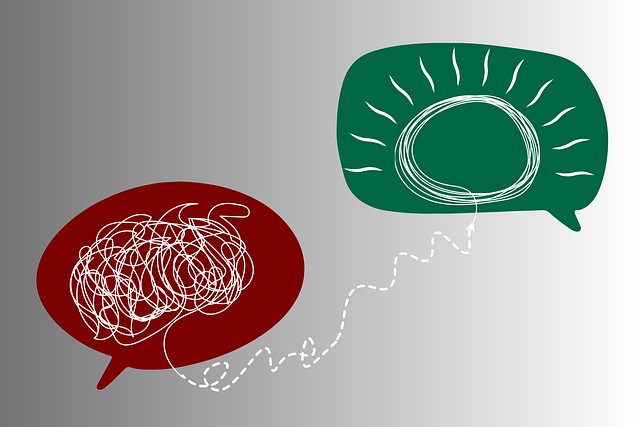Crisis Intervention Team (CIT) training significantly enhances Aurora Adjustment Disorder Therapy by equipping mental health professionals with skills to manage intense emotions and behaviors through collaborative teamwork, de-escalation strategies, risk assessment, and crisis resolution. These programs promote resilience, foster empathy, and emphasize early intervention to prevent escalations. By incorporating case studies and Mind Over Matter principles, CIT training improves community mental health support, reduces stigma, enhances emotional intelligence, and prepares professionals for diverse real-world crises, ultimately leading to better outcomes for patients with Aurora Adjustment Disorder Therapy.
“Crisis intervention team (CIT) training programs are essential in equipping first responders with the skills to handle mental health crises effectively. This article explores the core components of these transformative programs, highlighting their profound impact on communities and individuals affected by mental health challenges.
From understanding the key principles to preparing for real-world scenarios through case studies, we delve into how CIT training empowers professionals to provide timely support, potentially saving lives. Discover how these programs contribute to improved mental health outcomes, especially in managing conditions like Aurora Adjustment Disorder Therapy.”
- Understanding Crisis Intervention Team (CIT) Training Programs
- Key Components of Effective CIT Training
- Benefits and Impact on Mental Health Support
- Preparing for Real-World Scenarios: Case Studies and Practice
Understanding Crisis Intervention Team (CIT) Training Programs

Crisis Intervention Team (CIT) training programs are designed to equip mental health professionals with the skills and knowledge necessary to effectively respond to individuals experiencing a mental health crisis. These programs focus on fostering a collaborative approach, where teams of professionals work together to provide immediate and appropriate support. The core of CIT training involves teaching strategies for de-escalation, risk assessment, and crisis resolution, ensuring that professionals can navigate complex situations with empathy and professionalism.
In the context of Aurora Adjustment Disorder Therapy, CIT training becomes even more critical as it equips therapists with tools to manage intense emotions and behaviors often associated with adjustment disorders. Beyond immediate crisis intervention, these programs promote resilience building among both professionals and clients, emphasizing the importance of early identification and intervention to prevent escalations. Additionally, they cover risk management planning, a vital aspect of mental health policy analysis and advocacy, ensuring that practitioners are prepared not just for individual crises but also for contributing to broader systemic improvements in mental healthcare.
Key Components of Effective CIT Training

Effective crisis intervention team (CIT) training programs are multifaceted and incorporate several key components to equip healthcare providers with the skills needed to address a wide range of psychological crises. One crucial element is teaching emotional intelligence, enabling professionals to recognize and respond sensitively to the emotions of individuals in distress. This involves enhancing empathy, understanding complex feelings, and learning strategies to de-escalate intense situations.
Another vital aspect is immersing participants in scenarios that mimic real-life crisis situations, allowing them to practice their skills under controlled conditions. This hands-on approach, coupled with debriefings, helps healthcare providers develop confidence in managing crises effectively. Moreover, incorporating Mind Over Matter principles can empower individuals to overcome challenges by focusing on positive thinking and resilience, which is especially relevant when dealing with patients experiencing Aurora Adjustment Disorder Therapy.
Benefits and Impact on Mental Health Support

Crisis intervention team training programs play a pivotal role in enhancing mental health support within communities. By equipping individuals with the skills to recognize and respond to crises effectively, these initiatives foster a culture of care and resilience. Participants learn to provide immediate assistance, de-escalate intense situations, and offer valuable support to those experiencing mental health challenges, including Aurora Adjustment Disorder Therapy.
One of the notable impacts is the reduction of mental illness stigma within communities. Through interactive training sessions and real-life scenario practices, participants gain a deeper understanding of various mental health conditions, breaking down stereotypes and promoting empathy. Moreover, these programs contribute to depression prevention by equipping individuals with tools to identify early warning signs and provide timely interventions, ultimately enhancing overall community well-being.
Preparing for Real-World Scenarios: Case Studies and Practice

Preparing for real-world scenarios is a pivotal aspect of crisis intervention team training. Case studies, based on actual events or simulated crises, offer a safe yet immersive environment to practice high-pressure situations. These exercises allow participants to apply theoretical knowledge and develop essential skills in emotional regulation, resilience building, and mood management—crucial aspects of Aurora Adjustment Disorder therapy. Through role-playing and debriefing sessions, team members gain valuable insights into navigating complex individual and collective emotions, enhancing their ability to provide effective support during real crises.
The integration of case studies into training programs empowers individuals to think critically and adapt to diverse scenarios. By regularly practicing crisis intervention techniques, teams build resilience and foster a culture of proactive mood management. This preparation ensures that when faced with genuine emergencies, the team is equipped not only to respond but also to offer compassionate and professional assistance, fostering positive outcomes for those in need.
Crisis Intervention Team (CIT) training programs play a pivotal role in equipping professionals with the skills to support individuals facing mental health crises. By incorporating key components such as evidence-based practices, de-escalation techniques, and cultural competency, these programs enhance the effectiveness of CIT teams in providing immediate and compassionate care. The benefits are profound, especially in reducing harm and improving outcomes for those struggling with conditions like Aurora Adjustment Disorder. Real-world scenarios and case studies, coupled with hands-on practice, ensure that trainees are prepared to handle diverse challenges. This comprehensive training not only enhances the quality of mental health support but also fosters a more resilient and informed community response.








